
Vaccinations
Vaccinations protect against diseases by training the immune system to recognize and fight harmful germs.


Vaccination Packages
Check out our range of vaccine packages.
Contact us for more information.
These vaccines protect against pneumonia and meningitis, which are particularly important for individuals planning to go for Hajj or Umrah.
They are recommended for all pilgrims to reduce the risk of infection during the pilgrimage.
Meningococcal
Pneumococcal
Influenza
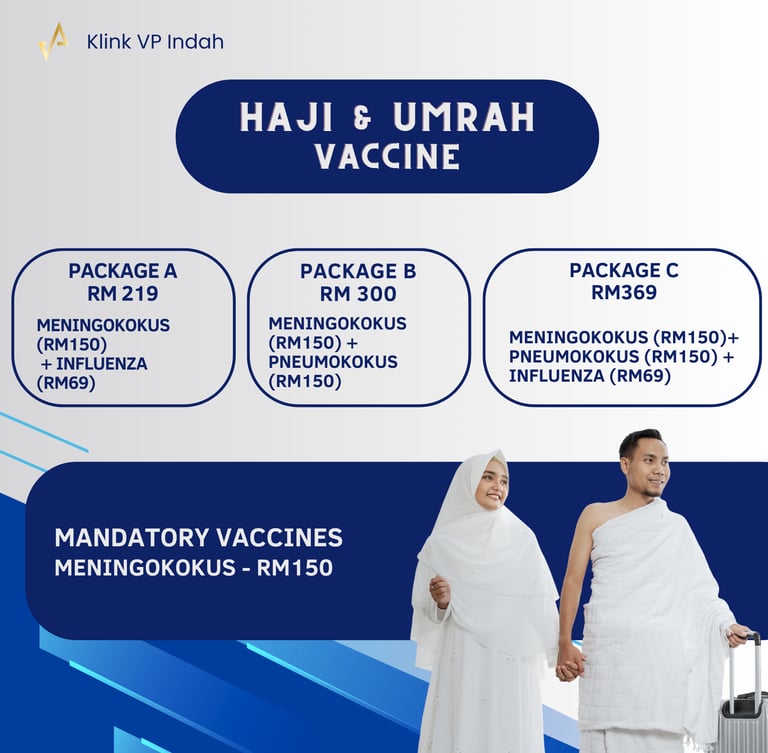

Haji & Umrah

The influenza vaccine helps protect against seasonal flu strains.
Who needs it:
Recommended for the elderly, children, and individuals with underlying health conditions.
How often:
Administered yearly.
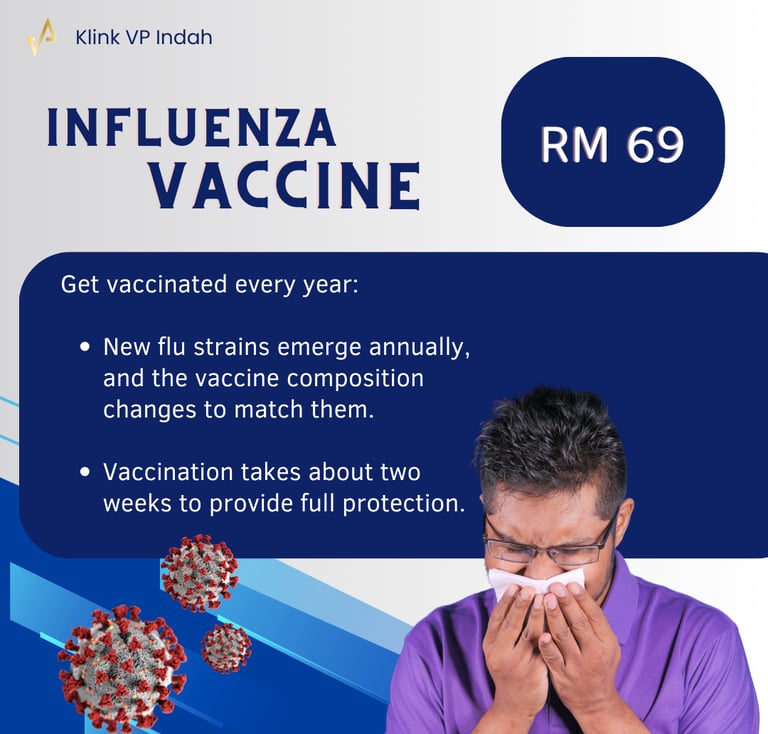

Influenza
Hepatitis A & B vaccines protect against viral infections that affect the liver.
Who needs it:
Travelers to high-risk areas, individuals with certain health conditions, and those at risk through lifestyle.
How often:
Vaccination schedule varies, typically requiring multiple doses.
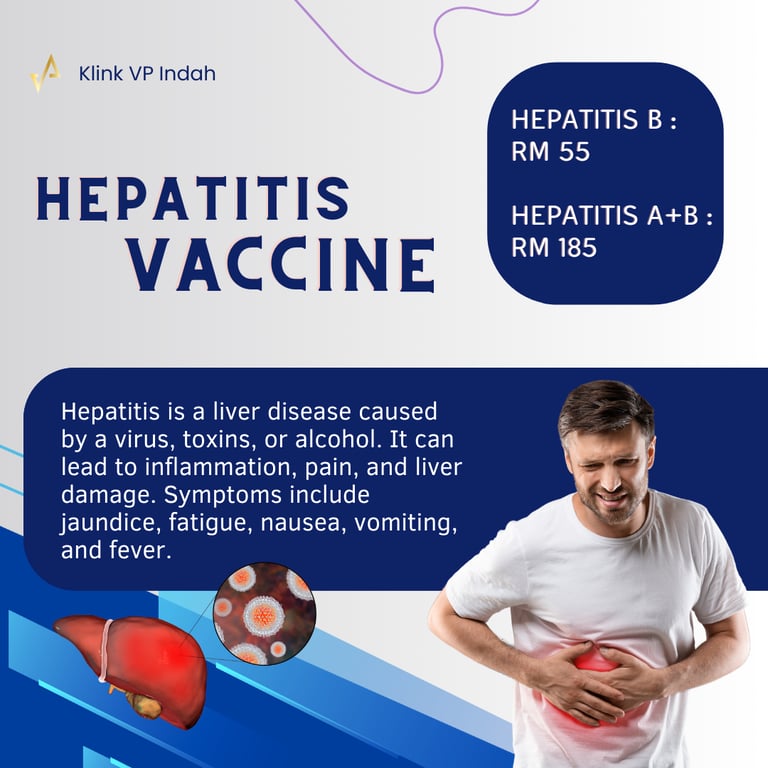

Hepatitis A & B

Tetanus vaccination helps protect against the bacteria that cause severe muscle spasms and can result from wounds or cuts.
Who needs it:
Childhood and also certain cases involving traumatic injuries.
How often:
Given in childhood as part of routine vaccines (DTaP)Adults need a booster every 10 years
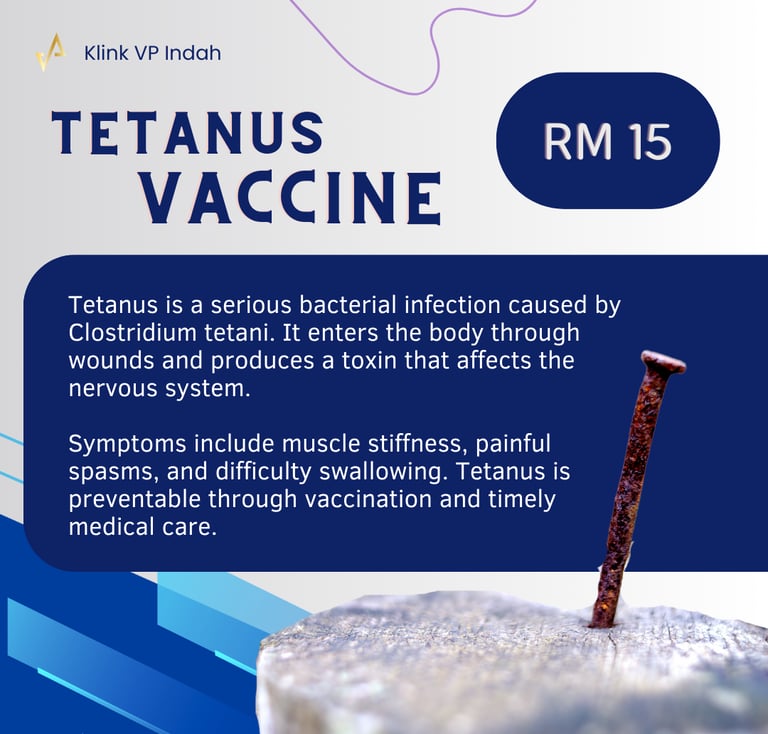

Tetanus
Typhoid vaccination protects against the bacterial infection caused by Salmonella typhi. It is mandatory for food handlers, and recommended for travelers to areas with poor sanitation.
Who needs it:
Food handlers
Travelers to areas where typhoid is common
People in close contact with a typhoid carrier
How often:
Given at least 1–2 weeks before travel
Booster needed every 2–5 years, depending on the vaccine type
Typhoid
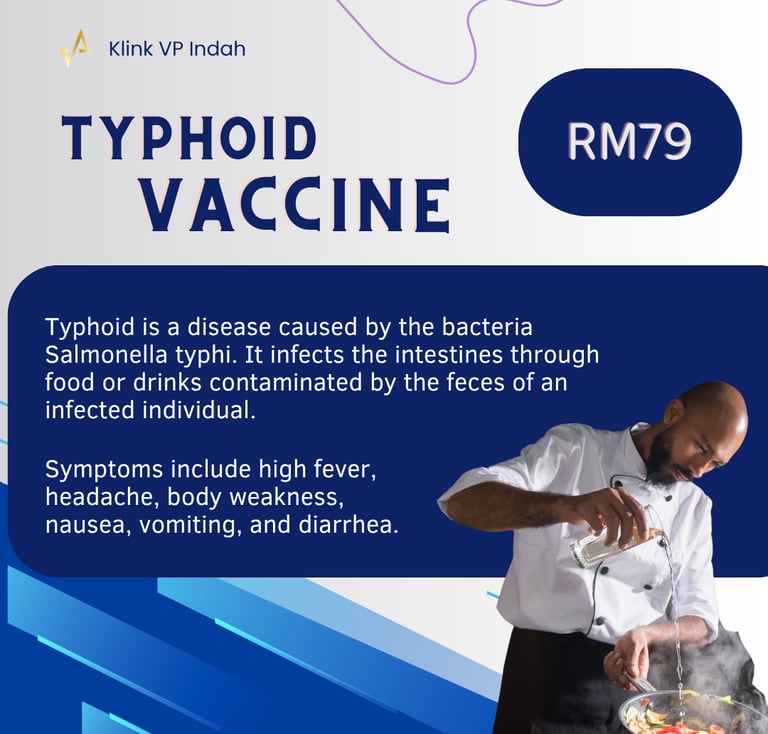


The HPV vaccine protects against the human papillomavirus, which can cause cervical, throat, and other cancers, as well as genital warts.
Who needs it:
Boys and girls starting at age 9–14
Catch-up vaccines up to age 26 if not vaccinated earlier
How often:
Given as 2 or 3 doses over 6 months, depending on age at first dose
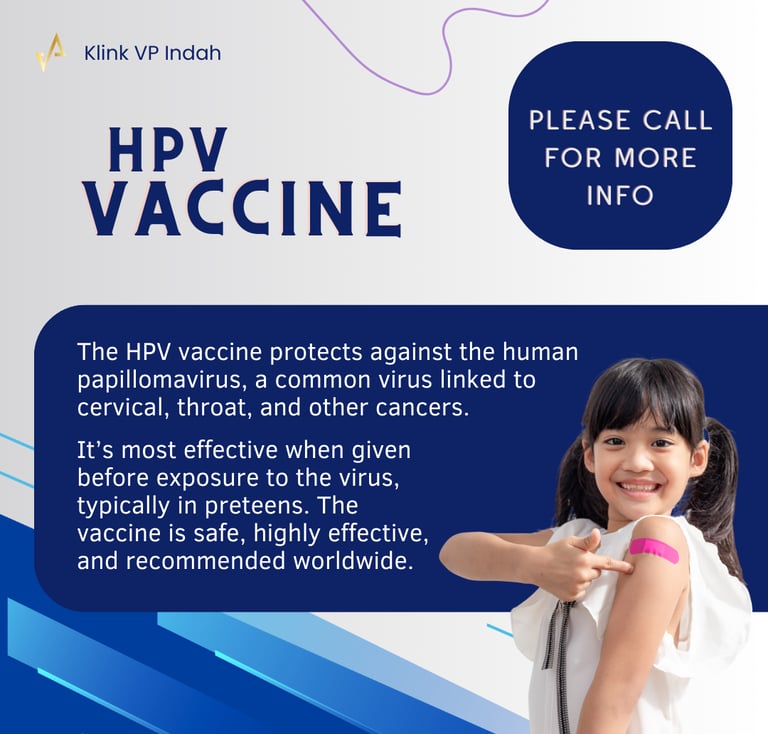

HPV
Child immunization
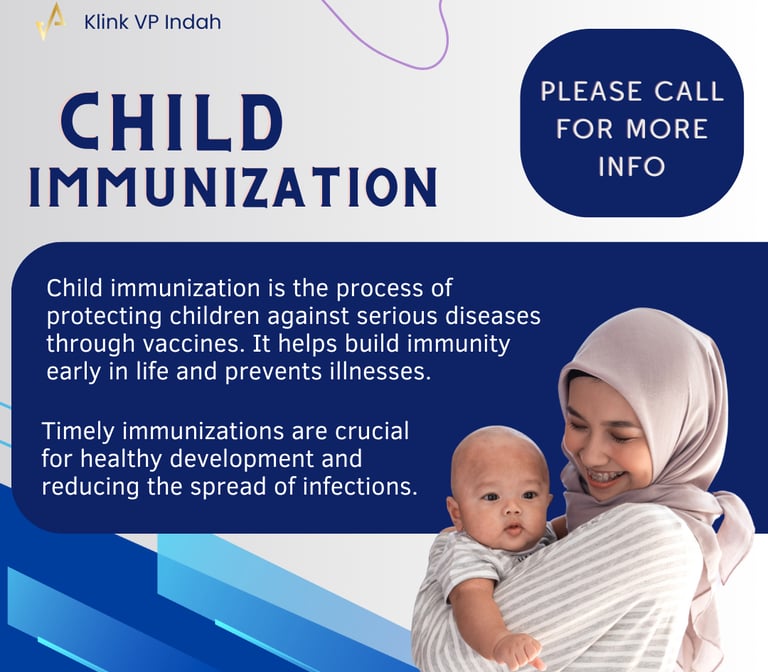

Child immunization includes a series of vaccines given to infants and children to protect against certain diseases.
These vaccines are usually administered through injections or oral doses, following a recommended schedule to ensure optimal protection.
Each vaccination service helps safeguard children from preventable diseases, improving public health.
